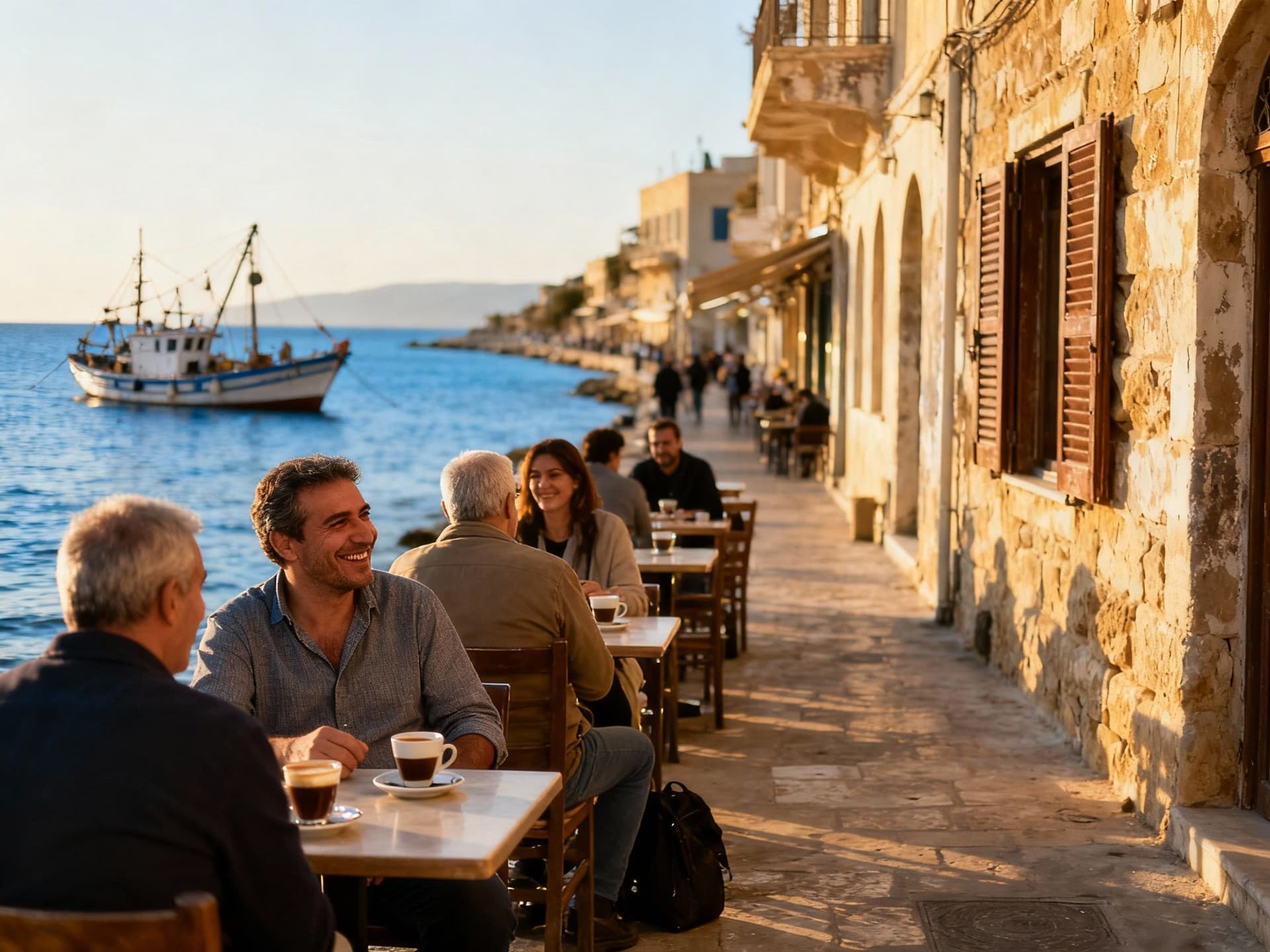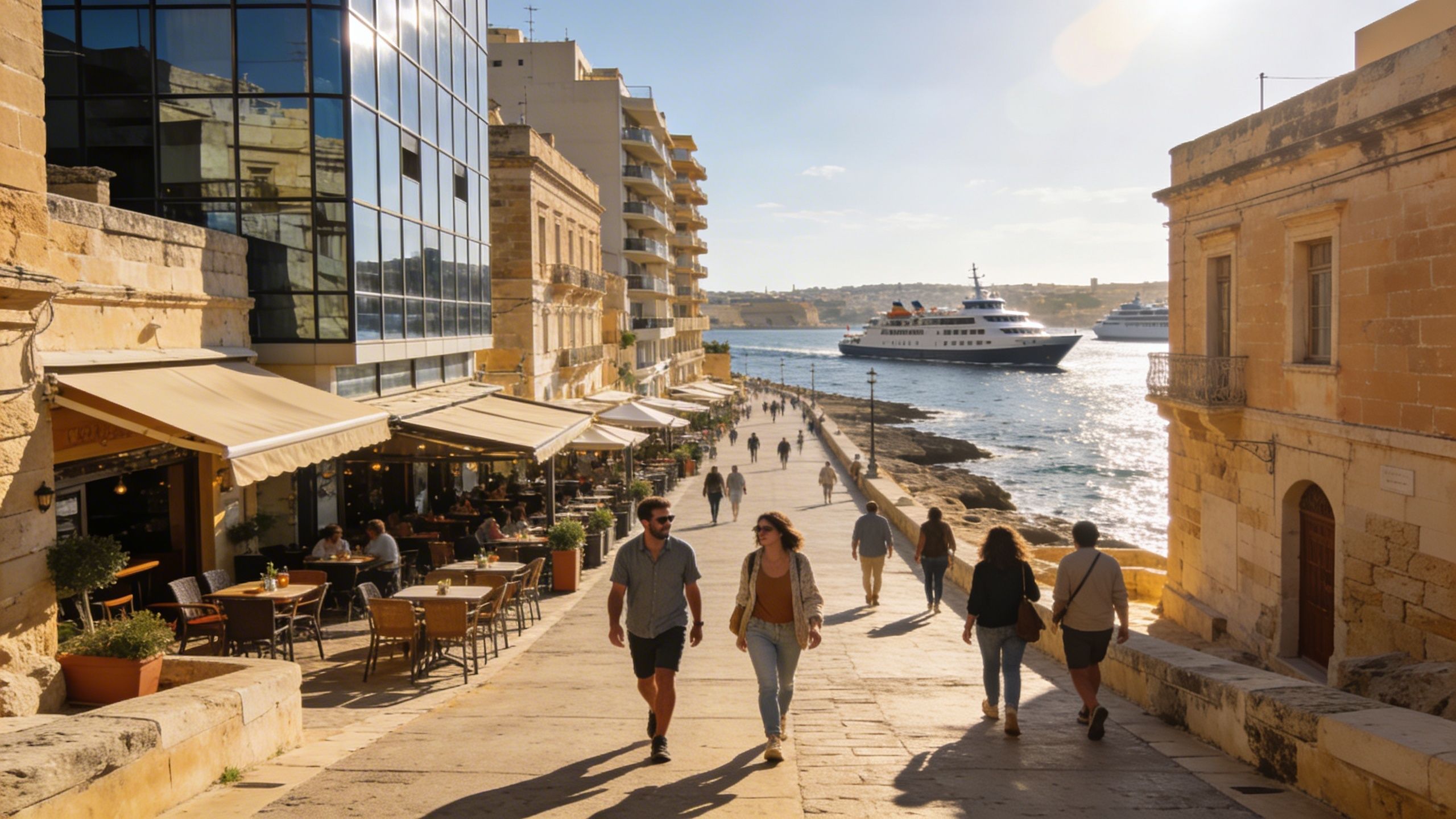Cyprus: Life, Fees and the Residency Reality
Live Limassol mornings and Troodos evenings, but secure your move: Cyprus demands lifestyle choices matched to title checks, transfer fees, VAT clarity and residency facts.
Imagine mornings in Limassol — a short walk from the seafront to a market stall selling warm halloumi and a coffee you’ll remember. Picture Sundays in the Troodos foothills, orange trees spilling scent onto narrow lanes. Cyprus pairs Mediterranean ease with a legal system that demands care. For buyers, that ease is seductive; the paperwork is not. Understanding residency, transfer rules and the Land Registry is what turns a dream into a secure home.
Living the Cyprus Life

Cyprus feels smaller than its map. Life is neighbourhood by neighbourhood: Limassol’s waterfront promenade, Nicosia’s shaded coffee courtyards, Paphos’s archaeological calm. Days are weather-shaped — long summers for terraces, winters for village tavernas. For buyers, lifestyle choices determine property type more clearly than headline prices: do you want sea soundtracks or mountain light?
Limassol, Lanes and Luxury
Limassol blends old quarters (the market near Anthoupoli) with new coastal developments. Small sidewalks, cafes like Karatello or To Limanaki, and compact blocks mean you can live central without needing a car. Resale apartments near Molos attract long-term renters. Expect modern façades, secure complexes, and higher municipal levies close to the marina.
Troodos & Rural Villages — Slow Light, Strong Community
Mountain villages such as Omodos or Platres offer stone houses, narrow streets and a different calendar: harvest weekends, church festivals, and neighborhoods where everyone knows your name. Properties here often need renovation and have lower purchase prices but higher costs for structural surveys and utility connections.
- Lifestyle highlights: morning coffee at Limassol’s Old Port, an afternoon swim at Kourion, Sundays at Paphos Municipal Market, vineyards near Omodos, and evening meze in Larnaca’s Finikoudes promenade.
Making the Move: Practical Considerations

Lifestyle is the reason you come; regulation is what keeps you there. Cyprus has a layered set of charges and residency rules that materially affect net cost and flexibility. Transfer fees, stamp duty, VAT on new builds and residency thresholds change the calculus between a seaside resale and a developer apartment.
Taxes and Fees that Shape Offers
Transfer fees are progressive (historical bands of 3/5/8% before reductions), but resale exemptions and VAT on new builds can shift who pays what. Stamp duty is modest and capped. New-builds often carry VAT (affecting price and transfer fee exemptions); resales can be cheaper to register but may carry legacy encumbrances. Always ask your lawyer for a transfer-fee estimate based on the Land Registry valuation, not the listed price.
Land registry realities: the Land Information System holds parcels, charges and survey references, but public access is restricted to interested parties. That means your lawyer or agent must pull a search certificate to confirm title, encumbrances and exact boundaries. Don’t skip this — many delayed transfers trace back to incomplete title checks or missing survey plans.
- Step-by-step buying checklist: 1) Commission a Land Registry search and a structural survey. 2) Confirm whether VAT applies (new build) and who bears it. 3) Obtain transfer fee and stamp duty estimates from your lawyer. 4) Check residency implications if you require a permanent permit. 5) Register utilities and municipal tax liabilities before completion.
Insider Knowledge: What Expats Wish They'd Known
Many expats arrive chasing a now-defunct passport-by-investment promise. That programme closed in 2020; today the realistic path is permanent residency (commonly linked to property of €300,000 or more) and later naturalisation after sustained residence. Treat residency as an ongoing commitment, not a one-off transaction.
Cultural and practical integration
Cyprus rewards patience. Learn a few Greek phrases, shop at the municipal market, attend a village festival — these actions open doors more than paperwork alone. Expect slower administrative timelines than in some northern European systems, and budget time for municipal approvals, utility connections and bank processes.
- Practical red flags to watch for: • Incomplete survey plans or mismatched boundaries. • Properties sold off-plan without escrow for buyers’ deposits. • Sellers promising residency outcomes as part of a sale. • Lack of clear statement on VAT treatment for new developments. • Unresolved municipal rates or utility arrears.
Work with a firm that understands both the life you want and the ledger that protects it. A local lawyer, a civil engineer for older homes, and an agent who knows which neighbourhoods attract reliable long-term tenants will save you months and euros. The right team turns Cyprus’s slower rhythms into a stable, enjoyable life.
How agencies add lifestyle value
Good agencies do more than show homes. They translate community nuances — which café is busiest in winter, where parking is a daily battle, which streets flood in heavy rains — into actionable filters. Ask agencies for recent client references and examples of how they resolved title or planning issues during purchase.
- When to move fast vs. when to wait: 1) Move faster for competitively priced resale apartments with clean titles. 2) Pause for new developments until the developer provides VAT clarity and escrow protections. 3) Delay offers in areas with incomplete cadastral mapping until searches are complete.
In Cyprus, the life you want is usually within reach. But the difference between a property that delivers and one that frustrates is in the detail. Start with neighbourhood visits — eat, walk, listen — then verify titles, tax treatment and residency implications. Treat the purchase as a lifestyle investment and a legal transaction in equal measure.
Next steps: commission a Land Registry search, request a transfer-fee quote from your lawyer, and spend a weekend living in your shortlisted neighbourhoods. When you’re ready, a local team will turn that weekend feeling into a legally sound purchase.
Swedish expat who moved from Stockholm to Marbella in 2018. Specializes in cross-border legal navigation and residency considerations for Scandinavian buyers.


